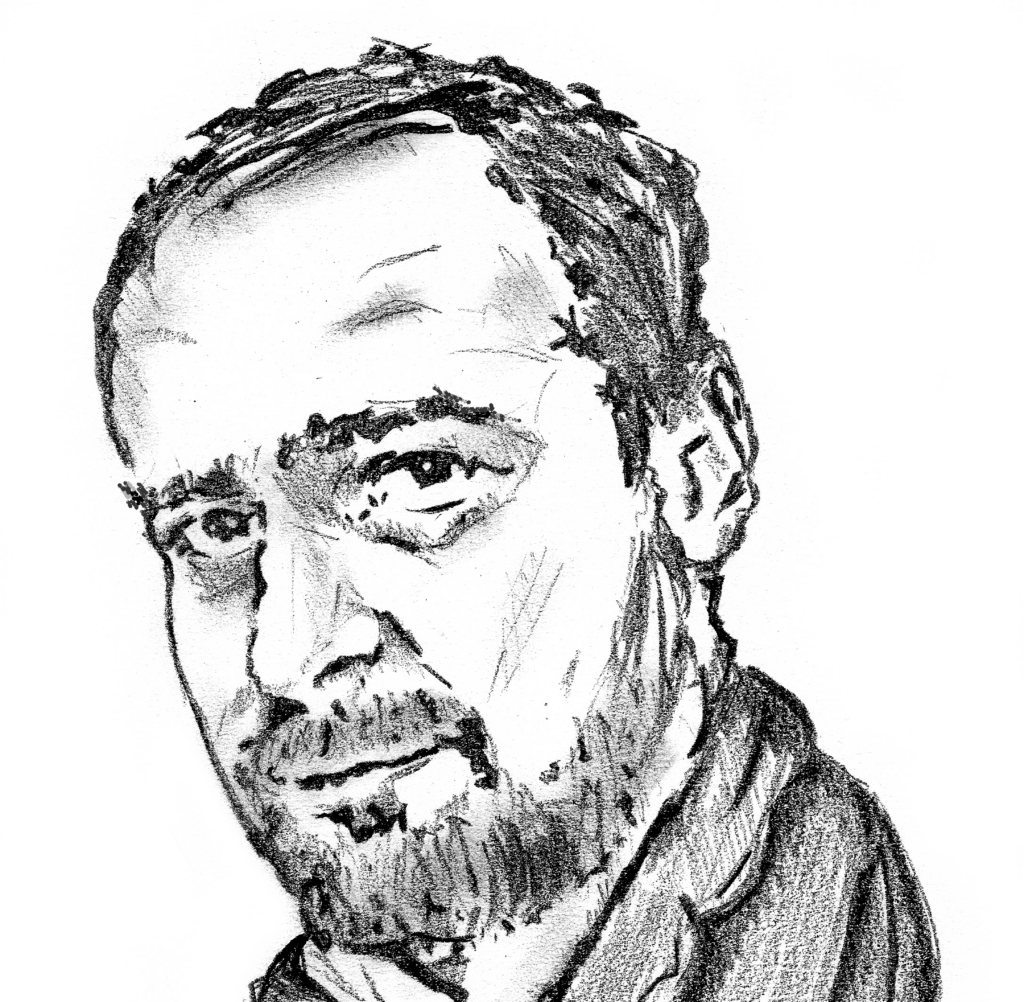As any serious issue, the statement of the Chief of the Romanian General Staff, General Gheorghiță Vlad – about the need to prepare the population for a presumed war – was mocked at.
Our general is not the only one to warn that „Russia will not stop”: NATO’s military commander, Admiral Rob Bauer stated it („We need a transformation for war in NATO”), Grant Shapps – the British Defence Minister („in the next 5 years they will attack”), retired generals who have commanded US or NATO troops in Europe and elsewhere have done so in recent weeks.
Now, we can put a filter on these statements: when things tend (and they do tend) to go politically haywire – when the extremes left and right are gaining weight from mainstream parties, a little dose of social fear „doesn’t hurt”: the pressure of fear in society always creates a need for balance – people tend to choose parties they know and not throw themselves into an unpredictable future with unpredictable parties.
But this filter through which we are tempted to read the statements of some strategists by trade is easily pierced – and indeed has been pierced – by the lights of Russian missile explosions in Ukraine:
In terms of geopolitical tensions – complicated in recent decades by economic globalisation – the world has just returned to the 1930s, even if the language, adversary experiments and diplomatic equations are more sophisticated today:
Not only US hegemony, but the Western model of society itself is being tested today – and it will be settled. When – that’s where the discussion begins.
Let’s take a look outside Western society and then look within these peoples to assess the chances that a war can at some point be avoided.
Outside:
Parallel to Western society – with its economic, military and freedom power of its citizens – the Asian triangle of China, Russia and Iran was created. All bloody autocracies, all with mimicked citizen freedoms, all fearsome military forces. And all with the agenda of rewriting the zones of influence; and all with an outlet to the free world: Russia to Europe – China to the US, Japan and Australia – Iran to the Mediterranean and Israel.
If Russia has been insinuating itself into the European energy economy in recent decades, if Iran has been proxying itself into the Middle East, China – with its greater reach – has been insinuating itself everywhere, from Africa to Eastern Europe and from South America to the Indo-South Pacific.
Neither stands idly by, leaving the West to its own devices: the tension grows from year to year, the way the powers read the UN Charter of Human Rights is different, the incompatibility of systems is beyond doubt: and this competition will sooner or later be settled.
Reaping all the benefits of globalisation since the end of the last century, stealing technology and especially the know-how of the liberal capitalist economy, China will not be content to be second fiddle, but will push for first place from technology to military capabilities – and the annexation of Taiwan is just a reprieve. Western strategists expect this action on the 2027-2028 horizon – when China will have „an economic opportunity” (it would be at the top of the economic increase) to afford a confrontation – as the Austro-Hungarian Empire and Germany had in 1914.
Russia is playing its last card to remain a global power and not to languish in the regional power zone not unlike Turkey. For Russia, this decade is „now or never” and its failure to annex Ukraine will make it unpredictable.
Iran – with ambitions to carry the torch of Islam in the Middle East – is standing by with a gun, and still working through the militias it funds in the region’s states: the Hamas attack on 7 October came just weeks before the scheduled signing of agreements to normalise relations between Saudi Arabia and Israel – which would have redrawn the political map in the region – now compromised or postponed until who knows when. What we’re seeing in Gaza is just one battle in a much larger Iranian war of the kind of frozen conflicts Putin occasionally heats up.
As for India and Brazil – the two huge economic forces, they will not enter the hegemonic geopolitical equation: the identity of their social systems is vague and they are not „deliverable” as „civilisations”. Even if we do not know today when and how exactly diplomatic efforts to de-escalate the confrontations locally will ‘break out’, clashes between the great fault lines are imminent.
No, we will not see a nuclear war: but we are likely to see wars of attrition, started on the basis of miscalculations – as Vladimir Putin has done – in which the aggressors superficially assess not only military but also economic effects – from which they start other regional wars with other economic effects – as the EU did with Russia. And this state of affairs would continue until the great tectonic plates settle down.
Three things can postpone – or maybe even, at some point, make disappear – general warlike tension:
- the economic dependence of the big players;
- scientific and technological research areas beyond politics and geopolitics – i.e. where scientists work on joint projects – Chinese with Europeans, Americans, Indians, etc;
- the fear, still effective, of nuclear weapons and of crossing red lines – i.e. the fear that led to the Cold War, the Cuban missile crisis and the break-up of the Communist camp.
Looking within the Western society, we cannot help but notice a few things that, unlike systemic adversarial societies, make it unprepared for confrontation. 3 observations:
1. for the Western citizen, war is something very abstract. It simply „can’t happen”, we all learned in school, and it sticks in our brain when we judge geopolitics – us too, and the Germans and the French and the Spanish etc – that nuclear weapons are enough to deter war and that – it’s simple, isn’t it? – instead of Russia came China, so we will have another bipolar world.
Since war is an abstract concept, we don’t even have to prepare for it – first of all mentally, as a social attitude and awareness of what is at stake from all points of view. Unlike in the US – where ‘serving your country’ is a civic honour, in Europe there is no country at all – there has not yet been that transition of individual consciousness that our country is the EU and not Germany or France or Spain.
2, The second problem is that at the level of societies and politicians – with the exception of Eastern European countries – Russia is underestimated. Russia had already annexed Crimea when Emmanuel Macron was talking about „Europe from Vladivostok to Lisbon”, and it took 3 days for Germany to officially react to invading Ukraine in February 2022.
The exclusive focus on economic interdependence does not work – as this Russian „experiment” proves: countries who were empires do not forget this and have in their collective psychology the illusion of „planetary destiny”, not to mention the social systems they feel entitled to export.
3, Ideological currents – both globalist and oligophrenic „pacifist” – are destroying, almost everywhere in the Western world, the ability of societies to perceive the wealth they have to defend. ”Wealth” does not necessarily mean material prosperity and property ownership – but freedom, social systems, citizenship rights. Starting with schoolchildren and ending with adult law abiding citizens – everyone should be told from morning until night that the balanced and caring society we live in is not a ‘natural’ organisation: it came about as a result of theoretical research and practical social action by people who knew the sense of lack of freedom and rights – who were aware that this fabric of society could easily unravel from within in the first place. Now we are witnessing a kind of movement within the West that simply resents Western values and balance, in the name of – what a joke! – of clichés of values torn from the reality of human nature. While Putin admirer – on the right – and destructive globalists – on the left – seem to hate the society in which they can express themselves. Not to mention that both would populate Putin’s and Xi’s jails if they lived there and deviated from the official stance of the two dictators.
Julian Benda wrote – in his criticism of the scholars, after denouncing the desire for war at all costs of some of them – that the issue can also be put the other way round: namely that the delusional pacifism (and well financed by Moscow – we know today) of the French intelligentsia in the 20s and 30s caused France more damage in the Second World War than 10 German divisions.
*
As for Romania – Prime Minister Ciolacu assures us that we have nothing to fear from war. True, the prospect of war is uncomfortable in an election year – especially since a good relationship with Russia (and „good with Russia” means subordination) is the refrain of the AUR and Mrs. Șoșoacă. But behind these soothing words, the government should get on with preparing – yes, God forbid! – war:
Not only Marcel Ciolacu has elections, but also Vladimir Putin – who does not want to risk who knows what uprising at this point: only after the Russian elections we will see what Russia will do in terms of mobilization in the army. Not to mention that such preparation takes years: Putin is, still an interlocutor with the West, but he will not live forever, and his succession is not yet settled. We could end up with who knows who at the helm of Russia, who may see things in a more trenchant key.
On the other hand, before military preparations, Romania is counting on… Turkey: irritated by the increasing access to the Black Sea that Russia has gained through Crimea and southern Ukraine, Turkey would not tolerate an attack on the mouth of the Danube. But before others negotiate and intervene, Romania would have to resist alone: with weapons and with manpower.
The West has only a few years left to guarantee peace – should both Putin and Xi decide that they need to leave something truly historic behind them: The Indo-Pacific, with Taiwan, for China, and territories in the West for Russia. Can we rule that out – or how possible and even likely?
If we really want peace, we will have to be ready for war: Tension – both military and economic – will be the „new normal” in the coming decades.
***










